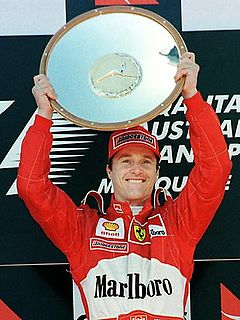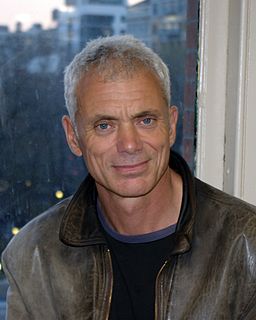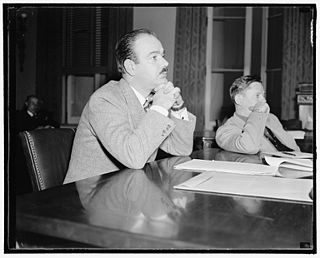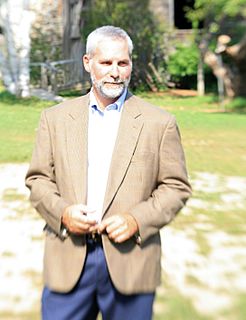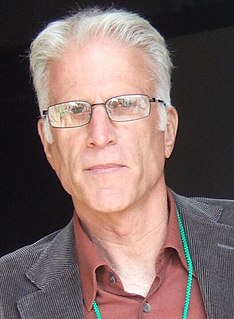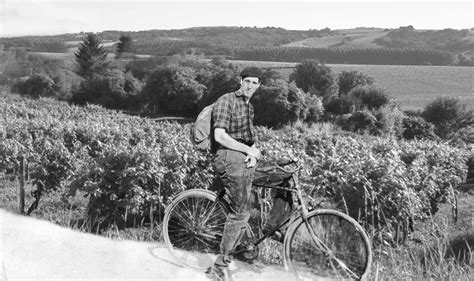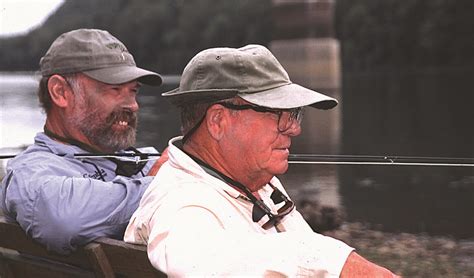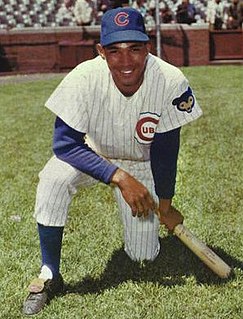A Quote by Clare Vanderpool
Fly fishing is not about catching the fish. It is about enjoying the water, the breeze, the fish swimming all around. If you catch one, good. If you don't...that is even better. That mean you come out and get to try all over again.
Related Quotes
The process could be likened to relaxing on a riverbank and watching a fish leap out of the water, sparkle for a moment in the sunlight, then dive back in a graceful arc. There is no need to engage in a mental dialogue about the merits and demerits of the fish, emotionally react to the fish, or jump into the water to try to catch the fish. Once the fish is out of sight, it should also be out of mind.
The natives of British Columbia live largely upon the fish which abound in their seas and rivers. If the fish do not come in due season, and the Indians are hungry, A Nootka wizard will make an image of a swimming fish and put it into the water in the direction from which the fish generally appear. This ceremony, accompanied by a prayer to the fish to come, will cause them to arrive at once.
I am almost certain fishermen posess a peculiar bend to their makeup. Fisherman are optimists, and the fish in the future is always preferable to the fish at hand. Even the best fishermen catch fish only a small percentage of the time, which means we persevere in a sport that features failure as its main ingredient. Truly great days, when the fish hammer the fly as soon as it lands on the water are rare.
The biggest danger we face is overfishing. We literally could fish out our oceans, some scientists believe, in the next 40, 50, 60 years. We are fishing out the top of the food chain, and it's pretty crucial because about 200 million people depend on fish and fishing for their livelihood, and about a billion people, mostly in poorer countries, depend on fish for their protein. So this is a big problem. Good news is, it's fixable.
[Writing is like fishing]. You don't bow because you made the fish. That's the difference. If you know that, then you bow for your labor.You crafted, you worked, you put in those hours so that you could catch that fish. But you didn't make that fish. You just caught the fish. That will help you stay humble and bow for the right reason and be very lucid about the work you do.
There are these two young fish swimming along and they happen to meet an older fish swimming the other way, who nods at them and says 'Morning, boys. How's the water?' And the two young fish swim on for a bit, and then eventually one of them looks over at the other and goes 'What the hell is water?'
Catching fish is not a mental game between fish and angler. A 'smart' trout is only smarter than other trout, not smarter than a fisherman. An angler must take the puzzle of the day's conditions, and matching those conditions and his knowledge of the fish come up with a good catch. He competes with a concept, not with a fish's brain.
Allowing the fly to sink to the fish's level, the angler makes a retrieve. The fly comes directly at the fish, which suddenly sees its approach. As the small fly get nearer, the fish moves forward to strike, but the tiny fly doesn't flee at the sight of the predator. Instead it continues to come directly toward the fish. Suddenly the fish realizes intuitively that something is wrong(its never happened before), so it flees until it can assess the situation. An opportunity for the angler has been lost.
When I was a young girl salmon fishing with my father in the Straits of Juan de Fuca in Washington State I used to lean out over the water and try to look past my own face, past the reflection of the boat, past the sun and darkness, down to where the fish were surely swimming. I made up charm songs and word-hopes to tempt the fish, to cause them to mean biting my hook. I believed they would do it if I asked them well and patiently and with the right hope. I am writing my poems like this. I have used the fabric and the people of my life as the bait.
Mobile is a seaport town, and we ate a lot of seafood. We'd go fishing, we'd catch our fish and we'd eat our fish. It was a ritual on Saturday morning for all my family - my grandfather, my brothers, my uncles, my father - to go fishing, and then the ladies of the family would clean the fish and fry them up.


